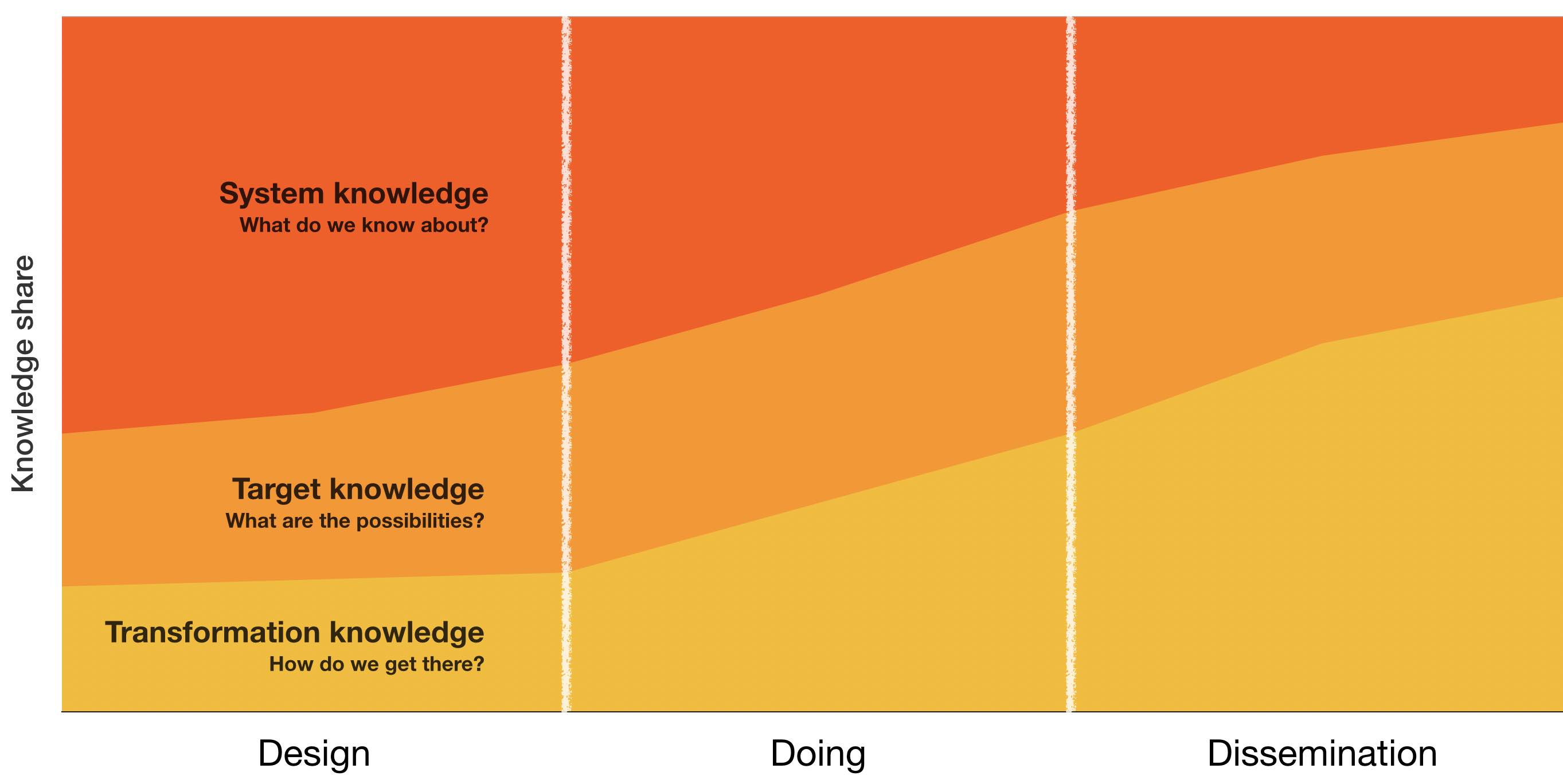Three types of knowledge
It is not just scientific knowledge that is important for integrated research.
When we are trying to have impact through our research, there are different types of knowledge that are important:
- Knowledge of the current system or state and the drivers of change
- Knowledge of what actions and solutions are possible/plausible
- Knowledge of how transformation can happen and can be encouraged and supported.
Considering the types of knowledge needed in your project to create the impact you want can help to identify who you might need to work with.
An example of these different knowledges might be:
Systems knowledge is knowing about the current predator populations in an areas, the drivers for population change and the consequences of the predation
Target knowledge is knowing what measures for predator control there are, what their effectiveness is likely to be in are particular area, knowing what the constraints are in this area, for example legal, political, what is acceptable for communities of interest.
Transformation knowledge is knowing the practical implications of bringing about change in, for example habits, practices and policies.
These different types of knowledge are relevant at all stages of research, but to different degrees.

The most relevant types of knowledge may change over time. In this example, systems knowledge was most important during the first half of the project, but transformation knowledge became most important during the dissemination phase.
More information
Brandt et al 2013. A review of transdisciplinary research in sustainability science, Ecological Economics Volume 92


